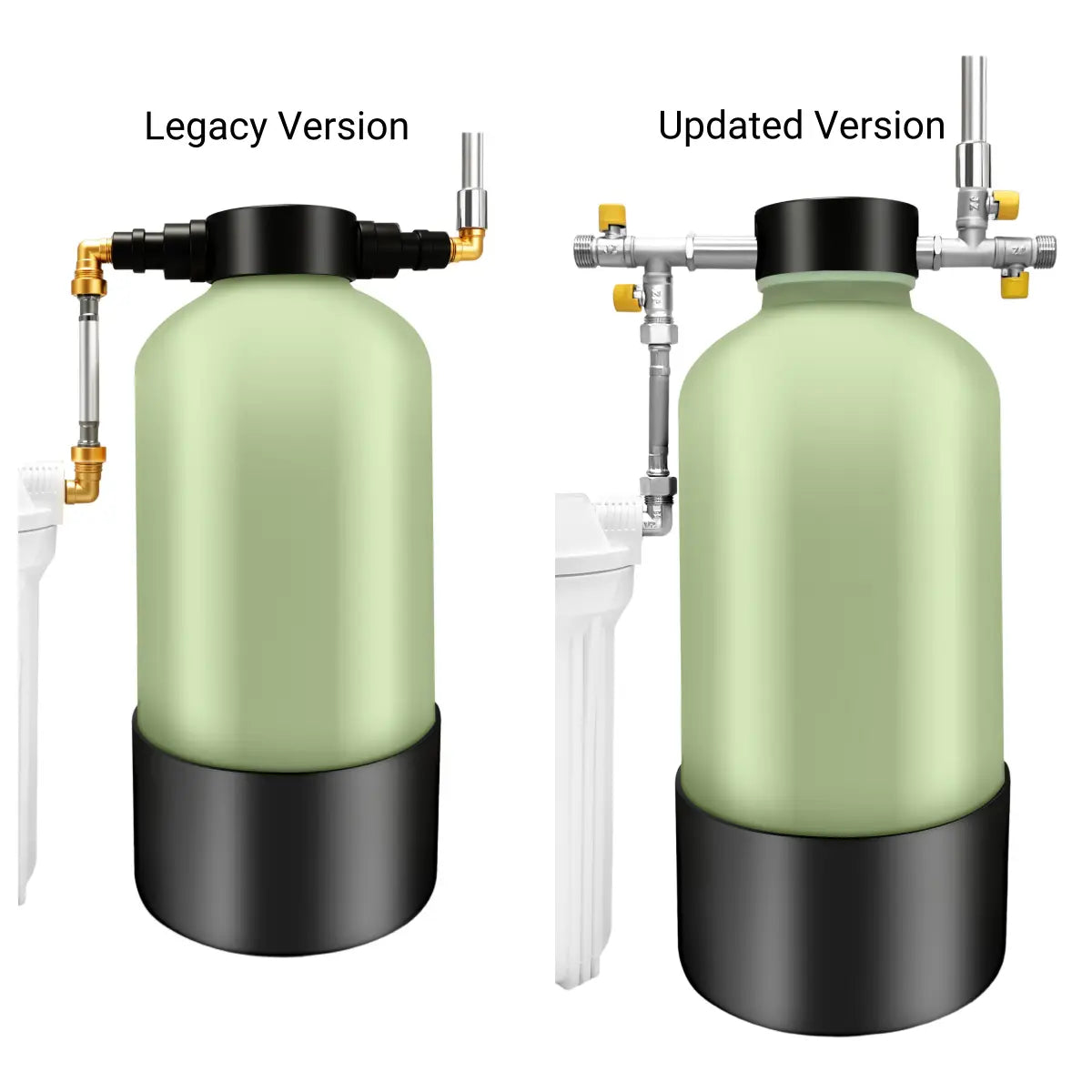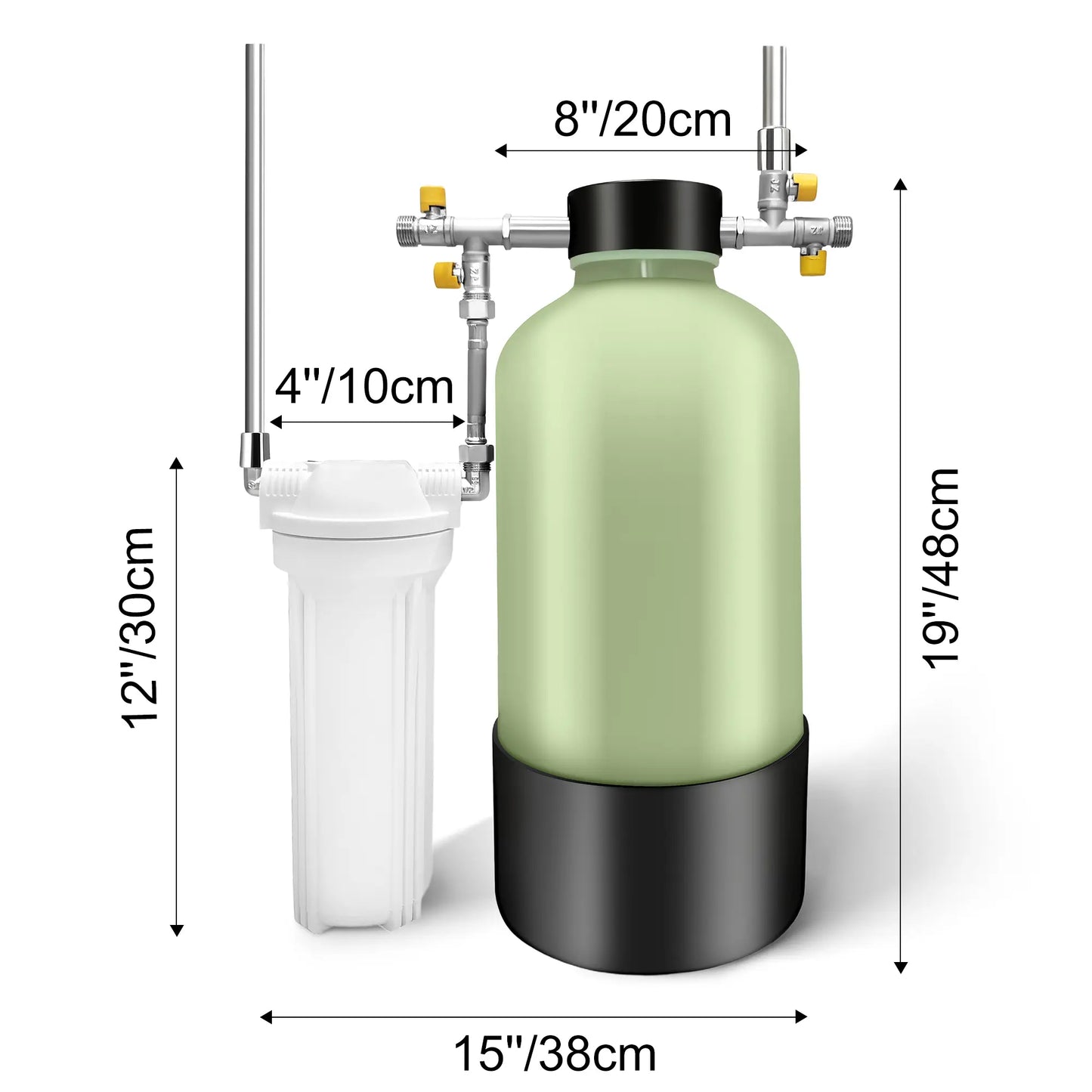Hard water contains minerals like calcium and magnesium, which can damage hair and skin. A shower water softener system can soften and purify the water in the shower, offering protection for hair and skin.

How a Shower Water Softener Works
A shower water softener works on the same principle as a whole-house softener. It contains thousands of tiny resin beads that use ion exchange to replace calcium and magnesium ions in the water with sodium ions, effectively softening the water.

Resin Regeneration
During the softening cycle, the sodium on the resin beads is exchanged for hard water minerals in the water. After a while, the resin beads must be rinsed of these minerals and "recharged" to continue attracting and collecting hard water minerals. This is called the regeneration cycle, so salt is usually added to a water softener. A brine solution flows through the resin, rinsing the beads and swapping out the collected hard water minerals with fresh sodium. This process is known as backwashing.
Shower Water Softener Regeneration
In a whole-house water softener, the regeneration process is automatically done through a plugged-in system. Since a shower water softener isn't powered, regeneration must be done manually. Find a container, fill it with a concentrated salt solution, and use a small water pump to circulate the brine between the container and the softener, recharging the resin.
Water Purification Filter
In addition to minerals, other substances in water can harm your hair and skin, such as chlorine, chlorine disinfection byproducts, and organic pollutants. Chlorine can also damage the resin, shortening its lifespan. Our shower softening system uses a pre-filter with activated carbon fiber to purify these harmful substances, providing dual protection.
Ultimate Shower Experience
The shower water softening system purifies and softens water, removing all harmful substances to provide an ultimate shower experience for your hair and skin.














